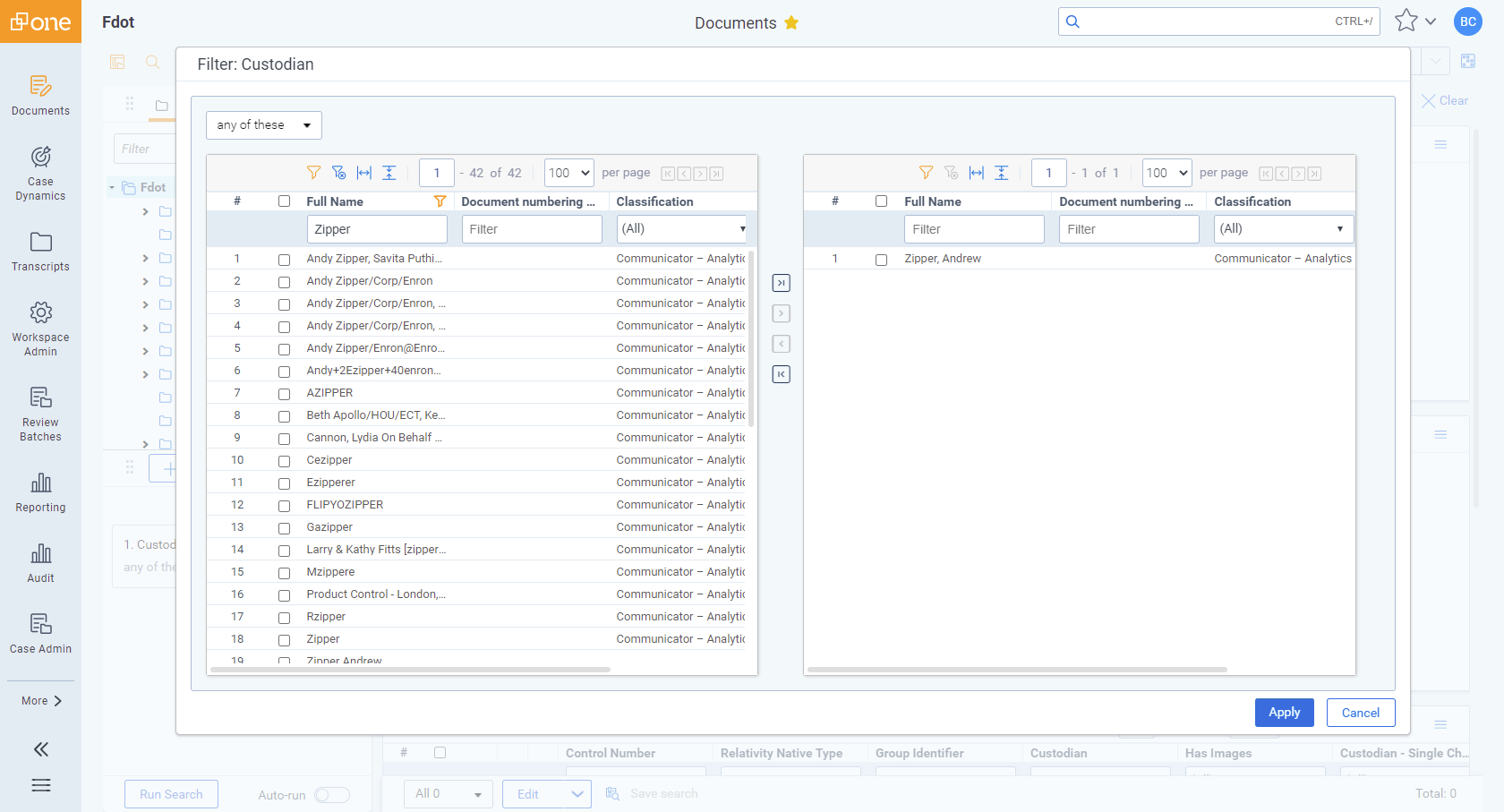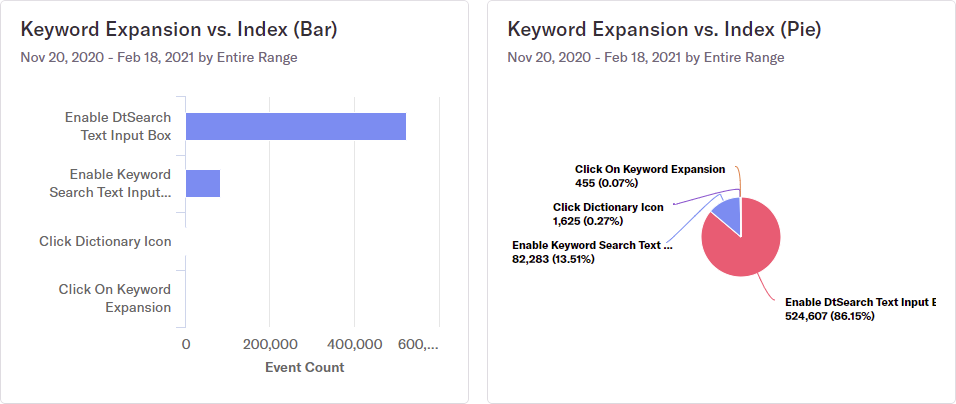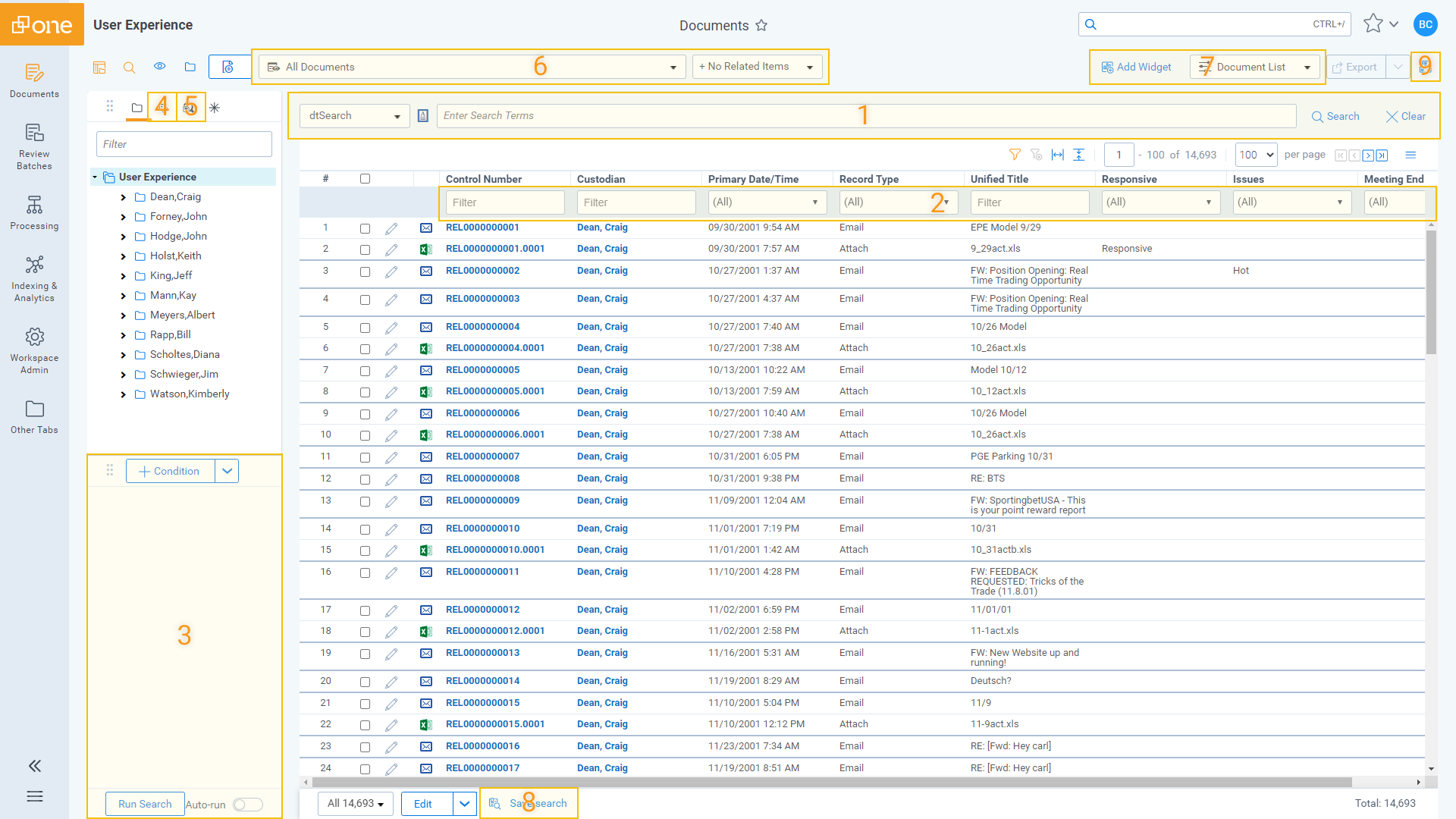

Search is one of the most critical yet least intuitive aspects of Relativity. It is a gatekeeper—an obstacle to end users doing their job effectively. In 2020 we set out to transform Search into a product that enhances users' expertise and extends their abilities, enabling them to be amazing at their jobs.

After working for several years on Analytics, I was provided an opportunity to switch products and expand my role. In July of 2020 I joined the Search vertical where I have helped build the team, define the vision, and influence the roadmap. The foundations of this vision are:
The project is still in the early stages, but it is some of the work I'm most proud of and the early results are very promising. This work is the foundation for massive improvements to Search in 2021 and beyond.
As we defined the multi-year vision for Search, we identified the three high-impact problem areas to focus on in 2021. Addressing these areas provide a step function improvement for the user experience and set us up for the future-looking work we have planned. They connect the dots from the software today to the vision for tomorrow.
This case study is focused specifically on problem 3. The Powerhouse List Page case study focuses on problems 1 and 2.
From the outset I approached this work like a science project. Using user data and feedback as a foundation, I framed the problems and formed hypotheses to improve the experience. Based on these hypotheses I am creating design explorations and working with the UX Research team to to test them, iterating until we've validated an optimal solution.
My top priority throughout this project has been to ensure that the user is at the center of everything we do. Every problem we solve is framed by real world use cases, explorations are informed and scrutinized by internal and external experts, and solutions are tested and validated by the people who use them.
To get the volume of user input we need for a project of this size—one spanning 12+ months—we decided to form a user advisory board. This board is comprised of a variety of user types across key customer segments, all of whom have committed to:
representing 3 primary user types
of varying size & sophistication
identified as high priority
The landscape of Relativity users is highly varied and diverse, but for our purposes the user types can be broken down into three major buckets across two axes: level of sophistication and type of work.
These three user types are highly representative of the majority of Relativity users and serve as useful context when exploring new features.
Through a combination of user interviews, quantitative usage metrics, and anecdotal feedback we identified the biggest painpoints with Search:
Throughout all of our user interviews, the single piece of feedback we heard most was "creating searches is too clicky!" As we've begun to dive into this problem—interviewing users, reviewing search composition—a few patterns have quickly emerged:
We have come to refer to this as the "people and dates problem." To do something as simple as searching for a specific person takes a minimum of 9 clicks. Add a congested interface into the mix and the task is onerous.

Another common piece of feedback we received is that features like Keyword Expansion—use AI to surface conceptually similar search terms—have broad appeal but are almost never used because they can't be found. Some have gone as far as to say that Keyword Expansion should be used in every review, but a quick look at the usage data makes it clear that isn't the case.

An audit of search functionality on the List Page provided vivid clarity around our users' grouping complaints—by default there are nine different areas containing search-related features. To make matters worse, they are scattered throughout the interface without much proximity or grouping. In this case, a picture says a thousand words.

Our early research has generated a few key hypotheses that are already yielding promising results in early explorations:
Using the above hypotheses as a guide, this early exploration reimagines what Search could be like if it were consolidated and its actions streamlined. The result is a dramatic reduction in clicks to achieve common tasks, a centralized location for related functionality, and recouped space across the interface.
to search for dates and fields
to search for people and entities
to use advanced search operations
Coming up next for this project is continued exploration and the typical prototype-test-refine loop as we strive to simplify and optimize search. We have already laid the groundwork for these features with the release of Recent Searches. Looking beyond, we have some exciting ideas to explore utilizing machine learning and natural language processing to make searching more accessible, powerful, and humane.


